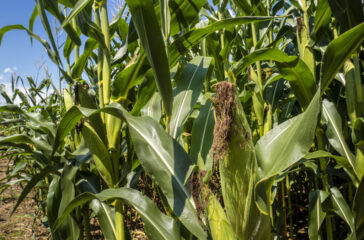High levels of toxic PFAS found in pesticides used in farming
By Shannon Kelleher
Widely used pesticides contain concerning levels of toxic “forever chemicals” called PFAS, adding to concerns about the human health risks posed by pesticides that are used in growing food, according to a study published last week.
The study found a type of PFAS called PFOS at levels hundreds of thousands of times higher than the Environmental Protection Agency (EPA) considers safe in 6 out of 10 insecticides tested, including malathion, one of the most commonly applied insecticides in the world.
PFOS was found at levels ranging from 3,920,000 to 19,200,000 parts-per-trillion (ppt), far higher than the EPA’s health advisory for PFOS in drinking water, which is set at 0.02 ppt. PFOS is no longer manufactured in the US and has been linked to cancer, as well as problems with the liver, thyroid, and immune system.
PFAS chemicals, including PFOS, were also found in soil samples, corn kernels, string beans, and peanuts that had been sprayed with pesticides at a government research laboratory in Lubbock, Texas, where the study was conducted.
“The level of PFAS absorption by plants detected in this study suggests that this exposure pathway poses a major threat to the safety of our food supply,” Tim Whitehouse, executive director of the government watchdog group PEER, wrote in a Sept. 26 letter to EPA Administrator Michael Regan.
“For this reason, it is quite possible that PFAS in our food is a bigger PFAS exposure pathway than water. This threat is not merely to the safety of U.S. agriculture but of the world’s food supply, as these pesticides are widely applied in other countries,” Whitehouse wrote in the letter.
 EWG
EWG